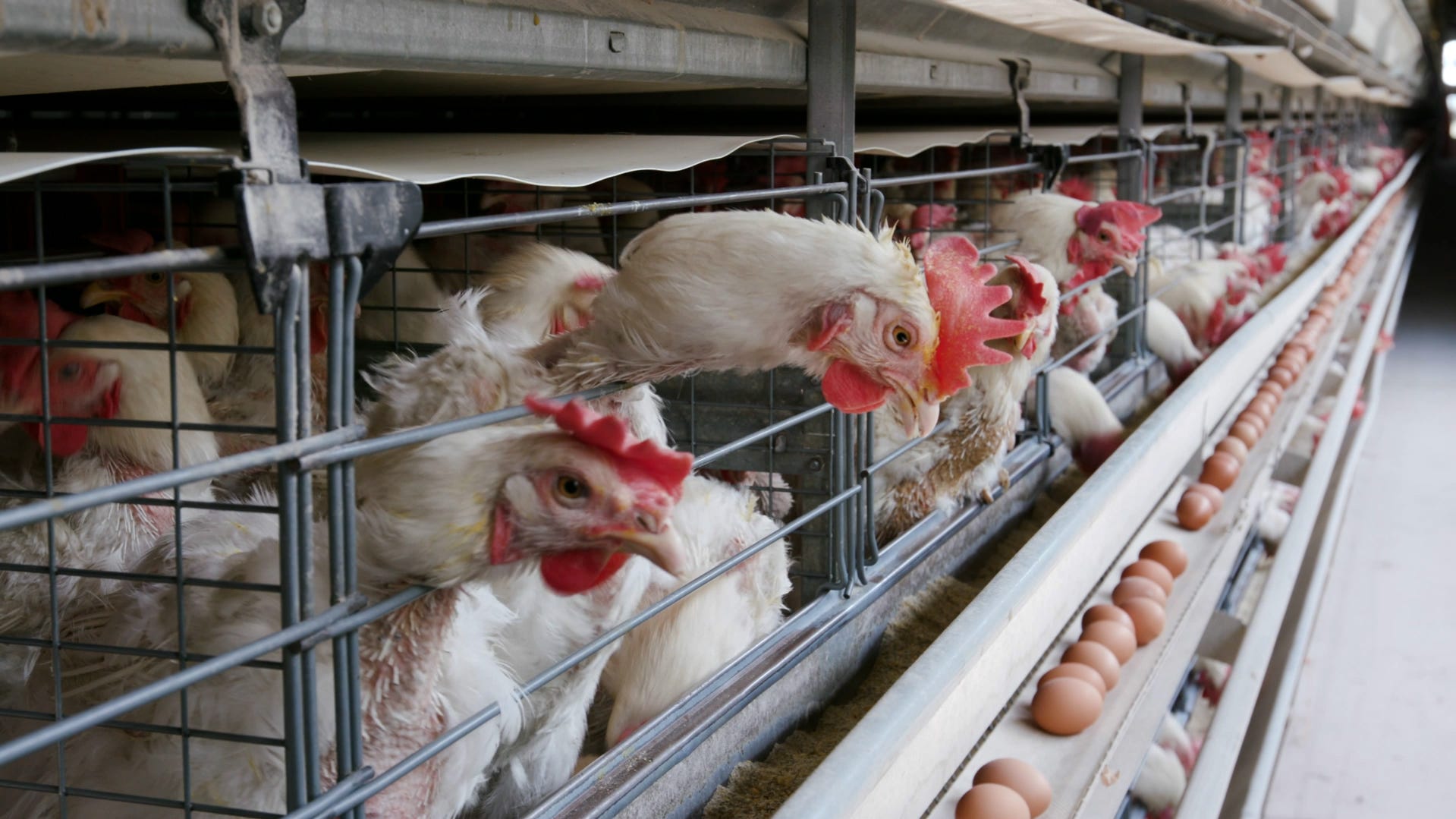Delaware
New Delaware laws you need to know about for 2024

This story originally appeared on 6abc.
A number of bills in Delaware have been signed into law in recent months that are either in effect ahead of the New Year or will be shortly after 2024 begins.
The new laws cover a wide range of topics including a minimum wage increase, raises for teachers, new gun laws and legalized marijuana.
Here’s what you need to know:
Marijuana legalization: House Bill 1 and House Bill 2 became law without Gov. John Carney’s signature. The two pieces of legislation remove all state-level civil and criminal penalties for simple marijuana possession and create a highly regulated industry to conduct recreational marijuana sales in Delaware.
Read more at Delaware.gov
Minimum wage increase: The minimum wage in Delaware will increase to $13.25 per hour in 2024, and will increase again to $15.00 per hour in 2025.
Read more at Delaware.gov
Raises for teachers: The FY24 budget included a 9 percent pay raise for classroom teachers, and a 3 percent raise for all of those who work in public education.
Read more at Delaware.gov
Roadway safety: Six pieces of legislation signed by Gov. Carney included a bill to:
- Curb speeding and reckless driving
- Expand “Move Over” protections
- Require helmets in the first two years of a motorcycle license
- Strengthen child safety seat requirements
- Enable green lights on snow plows to increase visibility
Read more at Delaware.gov
Guns banned at polling stations: A new law bans guns at polling stations in Delaware except for: limits those individuals who may possess a firearm at a polling place on an Election Day to the following: (1) law enforcement officers, (2) commissioned security guards acting in their official capacity, (3) constables acting in their official capacity, and (4) active-duty members of the United States Armed Forces and Delaware National Guard acting in their official capacity.
Read more at Delaware.gov
School gun ban: A new law makes it a crime for a person to possess a firearm in a Safe School and Recreation Zone except a police officer or a constable or active-duty member of the armed forces who is acting in an official capacity within the Safe School and Recreation Zone.
Read more at Delaware.gov
Automatic voter registration: Every person who completes an in-person or online application for the issuance or renewal of their Delaware driver license, learner permit, or identification card or completes an in-person or online application to change their name or address on these documents, and is not already registered to vote, is of sufficient age, and whose citizenship status has been confirmed by the DMV, is automatically registered to vote by the DOE.
Read more at Delaware.gov
Electric vehicle rebate program: The Clean Vehicle Rebate Program provides incentives for Delawareans and Delaware businesses to buy or lease new battery electric or plug-in hybrid vehicles.
Read more at Delaware.gov
Right to representation during eviction: The new budget includes funding to support a tenant’s right to representation in eviction proceedings.
Read more at Delaware.gov
State employee bereavement: A new law provides Delaware state employees who suffer a miscarriage, stillbirth or other loss, a maximum of 5 days of paid bereavement leave.
Read more at Delaware.gov
Greenhouse gas legislation: A new law establishes a statutory target of greenhouse gas emissions reductions over the medium and long term to mitigate the adverse effects of climate change due to anthropogenic greenhouse gas emissions on the State.
Read more at Delaware.gov

Delaware
Snow squall warning issued in central Ohio, with dangerous conditions for drivers
Winter storm hits Columbus area: See Ohio State campus video
Ohio State canceled classes Monday, Jan. 6, as did many area schools.
A snow squall warning has been issued for parts of central Ohio, bringing potentially dangerous driving conditions.
The National Weather Service in Wilmington issued the warning until 7:45 p.m. for parts of Franklin, Delaware and Licking counties.
Specifically, the warning is for Interstate 270, U.S. 62, U.S. 40 and U.S. 36 near Columbus; Interstate 70 and US-40 near Newark and U.S. 62 near Johnstown.
The Ohio Department of Transportation asked drivers to use caution and give their workers room on the roads.
Delaware
New Delaware law permits sale of raw milk. 5 things to know about drinking untreated milk

Human risk of contracting bird flu is very low, says the CDC
Those most at risk of contracting bird flu are people in close contact with infected animals, such as dairy or poultry workers.
Delaware residents can purchase raw milk directly from local dairy farms, following legislation that took effect in September 2024. The law allows consumers to buy unprocessed, unpasteurized and unhomogenized milk directly from dairy producers with the proper permits.
The legislation aims to support Delaware’s dairy farms while providing consumers with more choices in dairy products. However, health officials emphasize the importance of understanding the risks and facts about raw milk before making purchasing decisions.
What is raw milk?
Raw milk is milk that has not been pasteurized — a process that involves heating milk to a high temperature for a certain amount of time to kill harmful bacteria and pathogens. Proponents of raw milk argue it is a healthier, more nutritious option than pasteurized milk. Some consumers believe raw milk contains beneficial enzymes, probiotics and more natural vitamins that are destroyed during pasteurization.
Pasteurization involves heating beverages to kill disease-causing organisms. This process was first applied to milk in the late 1800s to combat public health threats like listeriosis, typhoid fever and tuberculosis. Today, pasteurization is a standard practice in the dairy industry to ensure milk is safe for consumption.
Raw v. pasteurized milk: 5 things to know
Health officials at the FDA and CDC warn that raw milk can contain pathogens that can cause serious illness. The risks of consuming untreated milk far outweigh any potential benefits. Here’s what to know:
- Nutritional value: According to the FDA, pasteurization does not significantly change milk’s nutritional value. Both raw and pasteurized milk contain the same essential nutrients, vitamins and minerals.
- Safety considerations: The CDC and FDA warn that raw milk can contain harmful bacteria and pathogens that pasteurization normally eliminates. These include E. coli, Salmonella and Listeria.
- Lactose content: If lactose intolerant, switching to raw milk won’t help. Both raw and pasteurized milk contain the same amount of lactose.
- Allergies: Milk allergies are caused by proteins that remain unchanged whether the milk is raw or pasteurized. Switching to raw milk will not prevent allergic reactions.
- Health claims: While some advocate for raw milk’s health benefits, scientific research has not confirmed any advantages of raw milk over pasteurized milk.
Raw milk and bird flu
Delaware’s law allowing raw milk sales comes as bird flu continues to spread across the country.
Dairy cattle, a significant source of human exposure to bird flu, play a key role in monitoring efforts. The virus’s discovery in dairy cattle across 16 states prompted the USDA to institute a proactive milk testing program. There are 15 dairy farms in the First State, as reported by researchers at the University of Delaware’s farm management program. Delaware joined the National Milk Testing Strategy earlier this month to ensure dairy products remain free of contamination.
In December, officials found several wild geese infected with highly pathogenic avian influenza (HPAI), or bird flu, along Delaware’s coast in Sussex County. Although most healthy individuals recover from illnesses linked to contaminated milk or bird flu exposure, severe or life-threatening symptoms can occur. In January, the U.S. reported its first death from H5N1 bird flu. The victim, a Louisiana resident over 65 with underlying health conditions, fell ill after contact with wild birds and a backyard flock.
This story was written with contributions from USA TODAY reporter Karen Weintraub. You can contact Anitra Johnson at ajohnson@delawareonline.com.
Delaware
Winter Weather Advisory issued for part of Delaware. Here’s how much snow to expect
How to safely shovel snow
The Mayo Clinic has some tips for safely shoveling snow.
The National Weather Service has issued a Winter Weather Advisory for New Castle County.
The advisory began at 7 a.m. Sunday and will last until 1 a.m. Monday.
How much snow will Delaware receive?
New Castle County: Will have mixed precipitation early, but as temperatures drop the area is expected to receive 3 to 5 inches of snow. Snowfall rates of an inch per hour should develop at times this afternoon.
Kent Couty: Kent County should receive rain early and then around 1-2 inches of snow.
Sussex County: Sussex County is expected to start with rain and receive less than an inch of snow.
Most Delaware areas have already reached their high temperature for today. At 9 a.m., Wilmington was at 38 degrees.
After the snow moves off, a blast of frigid temperatures will move into the area. Temperatures are expected to fall below freezing tonight and remain there for several days. As a result, icy and slippery conditions may persist even after precipitation has ended.
How cold will it get in Delaware?
Delaware will face frigid temperatures early next week with sub-zero windchills.
New Castle County
In New Castle County, the low Sunday night will drop to 16. Monday will be sunny with highs around 22. Monday night, lows will drop to 5 degrees. Tuesday will be mostly cloudy with highs near 17. Tuesday night there is a chance of snow with lows dropping to 6 degrees. Wednesday is calling for sunny skies and a high of 16. Wednesday night will be clear with lows hitting 2 degrees.
The temperatures will start warming up on Thursday, and by Saturday New Castle County could break the freezing mark.
Kent County
After Sunday’s snow, Monday will be sunny with a high of around 25. Monday night will be clear with lows dropping to 8 degrees. Tuesday is calling for partly cloudy skies and highs only reaching 21 degrees. Tuesday night there is a chance of snow with lows falling to 10 degrees. Wednesday will be clear with highs around 19 degrees and Wednesday night lows will drop to 5 degrees.
Kent County is forecasted to get above freezing on Friday with Saturday’s high around 37 degrees.
Sussex County
Sussex County will also see frigid temperatures after Sunday’s snowfall as highs Monday will hit 26 degrees and the overnight low will drop to 8 degrees. Tuesday will be cloudy with highs around 22 degrees. There’s a chance of snow with lows dropping to 11 degrees on Tuesday night. Wednesday will be sunny with highs around 20 degrees and Wednesday night will be the coldest with lows around 5 degrees.
Sussex County could break the freezing mark on Thursday as highs reach 30 degrees. Friday should have temperatures around 34 and Saturday will see highs around 40 degrees.
What is wind chill?
According to the National Weather Service, wind chill is a term used to describe what the air temperature feels like to the human skin due to the combination of cold temperatures and winds blowing on exposed skin. In simple terms, the colder the air temperature and the higher the wind speeds the colder it will feel on your skin if you’re outside. So even if it remains the same temperature, but the wind speed increases it will feel colder to your skin.
-

 Science1 week ago
Science1 week agoMetro will offer free rides in L.A. through Sunday due to fires
-
/cdn.vox-cdn.com/uploads/chorus_asset/file/23935558/acastro_STK103__01.jpg)
/cdn.vox-cdn.com/uploads/chorus_asset/file/23935558/acastro_STK103__01.jpg) Technology1 week ago
Technology1 week agoAmazon Prime will shut down its clothing try-on program
-
/cdn.vox-cdn.com/uploads/chorus_asset/file/25826211/lorealcellbioprint.jpg)
/cdn.vox-cdn.com/uploads/chorus_asset/file/25826211/lorealcellbioprint.jpg) Technology1 week ago
Technology1 week agoL’Oréal’s new skincare gadget told me I should try retinol
-
/cdn.vox-cdn.com/uploads/chorus_asset/file/25832751/2192581677.jpg)
/cdn.vox-cdn.com/uploads/chorus_asset/file/25832751/2192581677.jpg) Technology4 days ago
Technology4 days agoSuper Bowl LIX will stream for free on Tubi
-

 Business6 days ago
Business6 days agoWhy TikTok Users Are Downloading ‘Red Note,’ the Chinese App
-
/cdn.vox-cdn.com/uploads/chorus_asset/file/25835602/Switch_DonkeyKongCountryReturnsHD_scrn_19.png)
/cdn.vox-cdn.com/uploads/chorus_asset/file/25835602/Switch_DonkeyKongCountryReturnsHD_scrn_19.png) Technology2 days ago
Technology2 days agoNintendo omits original Donkey Kong Country Returns team from the remaster’s credits
-

 Politics1 week ago
Politics1 week agoTrump to be sentenced in New York criminal trial
-

 Culture2 days ago
Culture2 days agoAmerican men can’t win Olympic cross-country skiing medals — or can they?



















